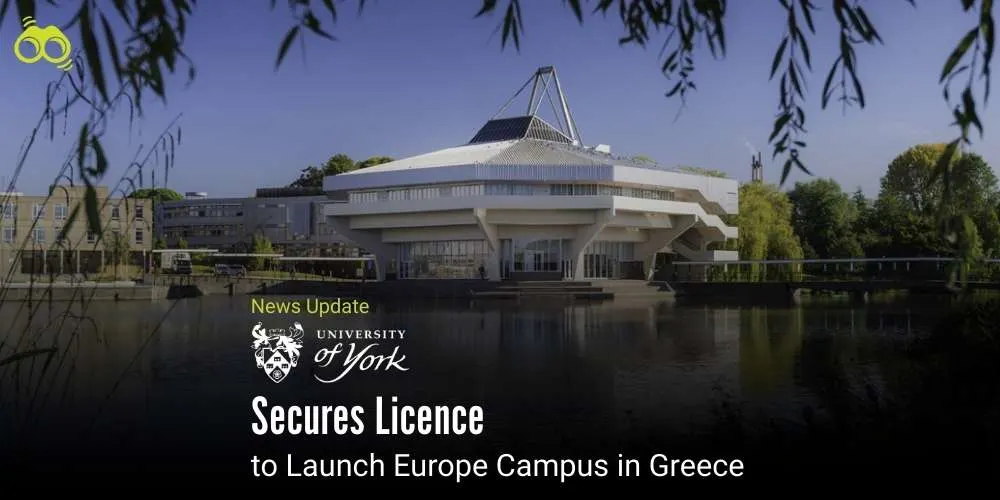University of York Expands Skills Training and Research Opportunities Across Europe and Asia
York Strengthens International Presence with New Campuses in Greece and India
Founded in 1963, the University of York, UK, has long been recognised as a leading member of the Russell Group of UK universities, noted for its commitment to academic excellence, equality, and opportunity. With a student body exceeding 20,000 from over 150 countries, the institution reportedly offers more than 600 undergraduate and postgraduate degree programmes across 40 departments. Its teaching has been rated Gold, and it consistently ranks among the top ten UK universities for research performance. The university’s 500-acre campus is said to combine natural landscapes with advanced infrastructure, including the £45 million Institute for Safe Autonomy, which supports science and technology innovation. York’s guiding ethos,“a university for public good”, continues to shape its global education opportunities and collaborative research initiatives.
Recent developments indicate that the University of York has received formal approval from the Greek Ministry of Education to establish a European branch campus under the name University of York Europe Campus, CITY U.L.E. This expansion builds upon its existing partnership with CITY College in Thessaloniki, which began in 2021 and already facilitates degree conferral in disciplines such as English Studies, Psychology, Business Administration, Economics, and Computer Science. The new legal status, granted under Greece’s revised legislation for University Legal Entities (ULEs), reportedly allows the campus to award degrees equivalent to those from Greek state universities, an important milestone in cross-border education training and skills development.
Sources suggest that the Europe Campus will operate across Thessaloniki and Athens, with the latter hosting a dedicated hub for Computer Science studies. These facilities are expected to support technology-driven teaching and training programmes, particularly in areas aligned with science universities in the UK. Observers have noted that ULE recognition will likely enhance York’s integration into the Greek higher education landscape, enabling stronger collaboration with domestic institutions, attracting government funding, and expanding participation in national research opportunities. The campus is said to deliver programmes across seven countries in Southeast Europe and the Caucasus, already drawing students from more than 60 nations. Plans are reportedly underway to introduce a distinctive Law programme combining Greek and Common Law, with postgraduate and doctoral degrees anticipated by 2026.
Commentary from senior leadership has reinforced the strategic significance of this move. Professor Charlie Jeffery, Vice-Chancellor of the University of York, was quoted as welcoming the Greek government’s decision, describing it as a means of offering students access to world-class UK degrees while positioning Greece as a hub for international education. He also noted that the legal framework would consolidate York’s European presence and open new avenues for academic partnerships and research impact. Professor Tracy Lightfoot, Academic Provost of the Europe Campus, reportedly emphasised York’s commitment to delivering high-quality education and dynamic research collaborations across disciplines, including Business, Psychology, Humanities, and Law.
This announcement follows York’s recent plans to establish a campus in Mumbai, scheduled to admit students in 2026. The Indian campus is expected to focus on computer science, with specialisations in artificial intelligence and cybersecurity, alongside business, economics, and creative industries. These initiatives reflect broader trends in postgraduate degree expansion and fusion training, as UK universities respond to global demand for advanced skills training and education pathways.














0 Comments (Please Login To Continue)